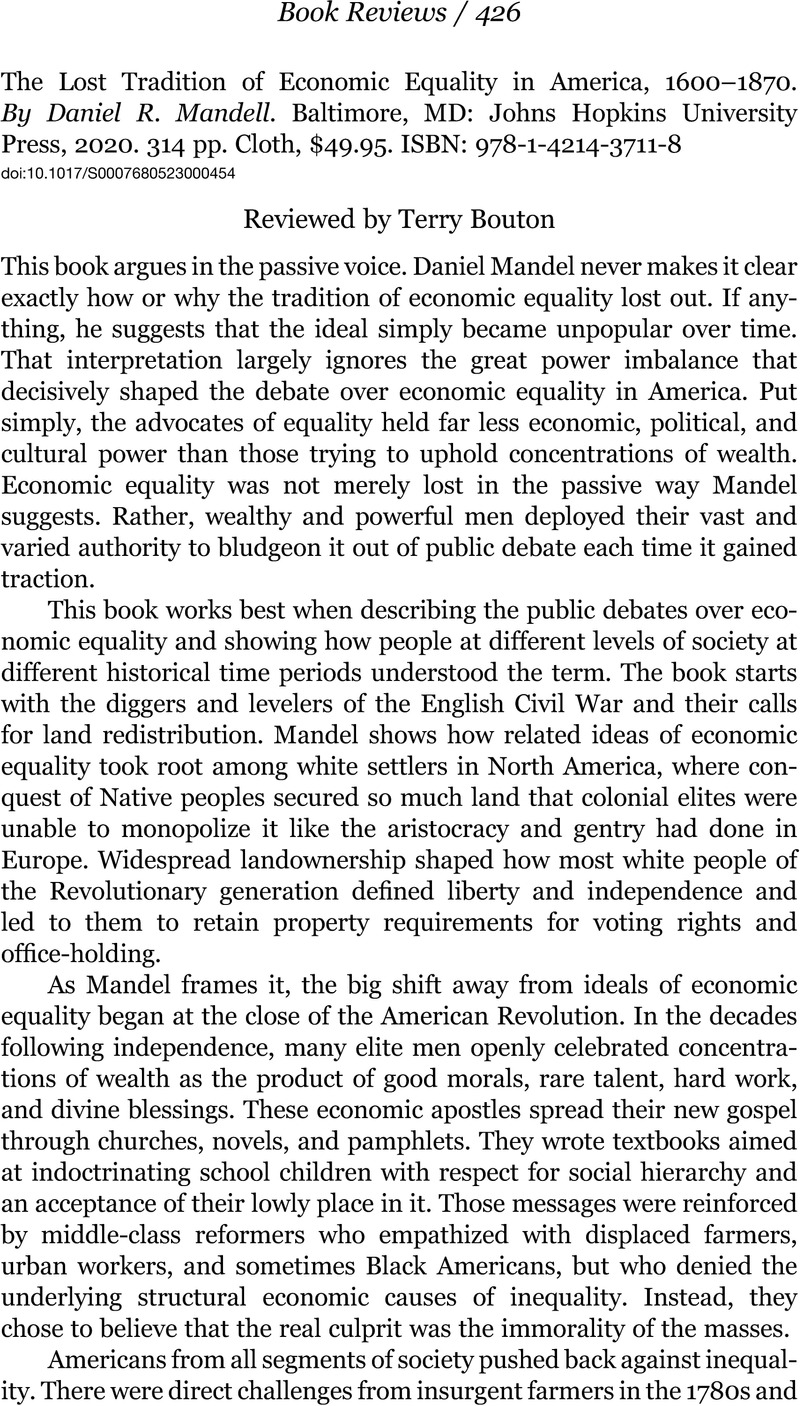No CrossRef data available.
Article contents
The Lost Tradition of Economic Equality in America, 1600–1870. By Daniel R. Mandell. Baltimore, MD: Johns Hopkins University Press, 2020. 314 pp. Cloth, $49.95. ISBN: 978-1-4214-3711-8
Review products
The Lost Tradition of Economic Equality in America, 1600–1870. By Daniel R. Mandell. Baltimore, MD: Johns Hopkins University Press, 2020. 314 pp. Cloth, $49.95. ISBN: 978-1-4214-3711-8
Published online by Cambridge University Press: 25 September 2023
Abstract
An abstract is not available for this content so a preview has been provided. Please use the Get access link above for information on how to access this content.

- Type
- Book Review
- Information
- Business History Review , Volume 97 , Issue 2: Business, Capitalism, and Slavery , Summer 2023 , pp. 426 - 428
- Copyright
- Copyright © 2023 The President and Fellows of Harvard College


